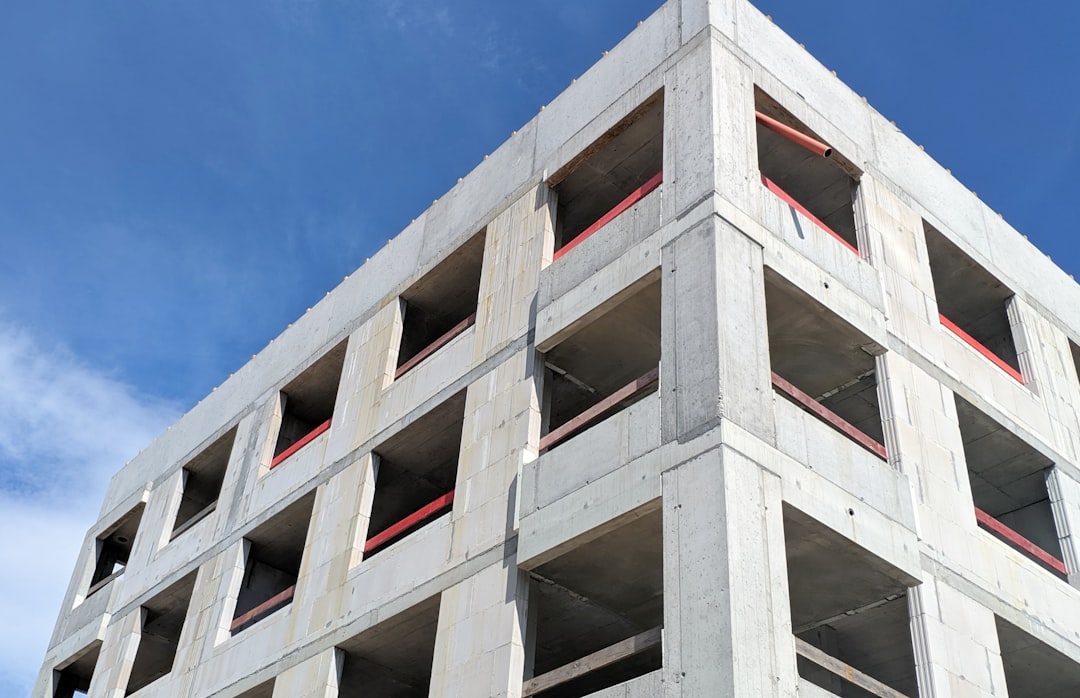Concrete Cost Sacramento: Professional Estimating Guide
Construction Costs in Sacramento
Price source: Costs shown are derived from our proprietary U.S. construction cost database (updated continuously from contractor/bid/pricing inputs and normalization rules).
Eva Steinmetzer-Shaw
Head of Marketing
Concrete Cost Sacramento: A Professional Guide for 2026
Understanding the concrete cost in Sacramento is crucial for construction professionals aiming to maintain profitability. In 2026, the cost for concrete projects can range significantly based on various factors. For instance, a 4" broom-finish driveway costs between $7–$13 per square foot per square foot, while a decorative patio with integral color ranges from $12–$18 per square foot per square foot. This guide explores the factors influencing these costs and offers strategies to manage them effectively.
Key Factors Affecting Concrete Prices in Sacramento
Concrete pricing in Sacramento is influenced by several local factors:
- Aggregate sources from regional quarries affect freight costs, which fluctuate with fuel prices.
- The Central Valley's clay soils require deeper excavation, impacting yardage.
- Residential areas on levee systems demand higher PSI mixes for flood resilience.
- Energy codes necessitate insulated slab edges and vapor barriers, affecting material needs.
Current Price Ranges for Residential Projects
Based on CountBricks' live cost database, here are the 2026 benchmarks for typical residential projects within a 25-mile radius of Downtown Sacramento:
- 4" broom-finish driveway: $7–$13 per square foot per square foot
- 6" garage slab with #4 rebar at 18" o/c: $7–$13 per square foot per square foot
- Decorative patio with integral color and light sandblast: $12–$18 per square foot per square foot
- Concrete block stem wall (8" CMU) including footing: $34–$42 per linear foot per linear foot
These prices include ready-mix, reinforcement, formwork, placing, finishing, curing compound, and standard mobilization. Permitting, demolition, and grading are separate line items.
Six Core Drivers of Concrete Costs
Construction professionals should monitor these key cost drivers:
- Cement Index: Portland cement accounts for 50-65% of mix cost. New SCM blends can alter costs by 4-8% per yard.
- Mix Design: A 3,000 PSI slab is approximately $15 less per yard than a 4,000 PSI mix.
- Reinforcement Choice: Switching to residential-grade wire mesh can reduce steel costs by 20%.
- Formwork Complexity: Complex designs increase labor and material waste.
- Access and Pump Needs: Limited access may require a boom pump, costing $750–$1,100 per day.
- Seasonality: Hot weather increases labor costs by 5–7% due to additional crew and admixtures.
Real-Time Estimating with CountBricks
CountBricks' AI engine provides real-time estimates by pulling daily prices from local suppliers. During a session, our estimator bot gathers essential project details to generate a comprehensive breakdown. Labor rates are adjusted for Sacramento County's prevailing wage tables.
Pro Tips for Cost Reduction
- Schedule pours before 11 am during summer to avoid additional admixture costs.
- Use fiber reinforcement where possible to eliminate rebar labor.
- Combine small slabs into a single dispatch to avoid short-load fees.
- Recycle removed concrete as base rock for cost savings.
- Consider fly-ash or slag mixes to reduce cement content and costs.
Case Study: Efficient Estimating in East Sacramento
A contractor used CountBricks to estimate a 650 sq ft stamped concrete patio, achieving a final price of $10,475, closely matching material invoices and saving time and resources.
Why Choose CountBricks for Concrete Estimating
- Instant voice-controlled estimating keeps crews productive.
- Automatic updates from suppliers ensure accurate pricing.
- Integrated invoicing streamlines project management.
- Real-time progress tracking and change orders via mobile app.
Get Started with Accurate Estimates
For precise concrete cost estimates in Sacramento, visit CountBricks.com and experience the most reliable estimating platform.
Uncovering Hidden Concrete Costs in Sacramento
Beyond material and labor, several hidden costs can impact project budgets. CountBricks identifies these during the estimating process.
1. Soil Remediation
Expansive clay pockets in Sacramento may require over-excavation, adding $3–$5 per square foot per square foot. CountBricks highlights these needs based on soil maps.
2. Utility Coordination Fees
Inspection fees from PG&E and SMUD can range from $175–$325. Our platform includes these costs when trenching or conduit sleeves are involved.
3. Curing and Protection
Hot weather necessitates additional curing measures, costing up to $0.60 per square foot per square foot. CountBricks auto-includes these based on seasonal conditions.
Negotiating Supplier Discounts
- Benchmark your yardage against regional averages for leverage.
- Analyze savings from alternative materials.
- Use side-by-side comparisons to manage client expectations.
Quick Win Strategies
- Pre-order inspection slots to avoid re-mobilization fees.
- Opt for reusable forms for cost efficiency on repeat projects.
- Utilize CountBricks' change-order tool for immediate billing.
Conclusion
By revealing hidden costs and providing regional insights, CountBricks empowers contractors to bid confidently and manage budgets effectively. Explore more at CountBricks.com.

